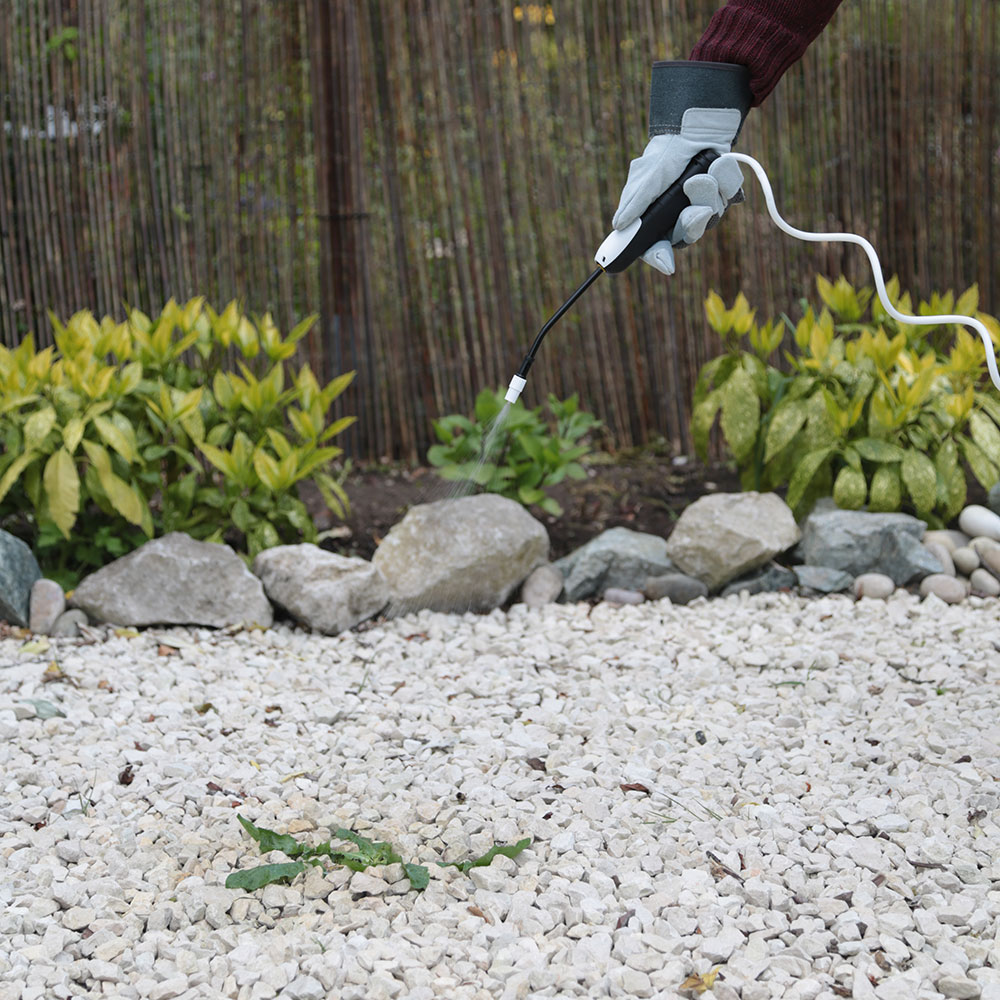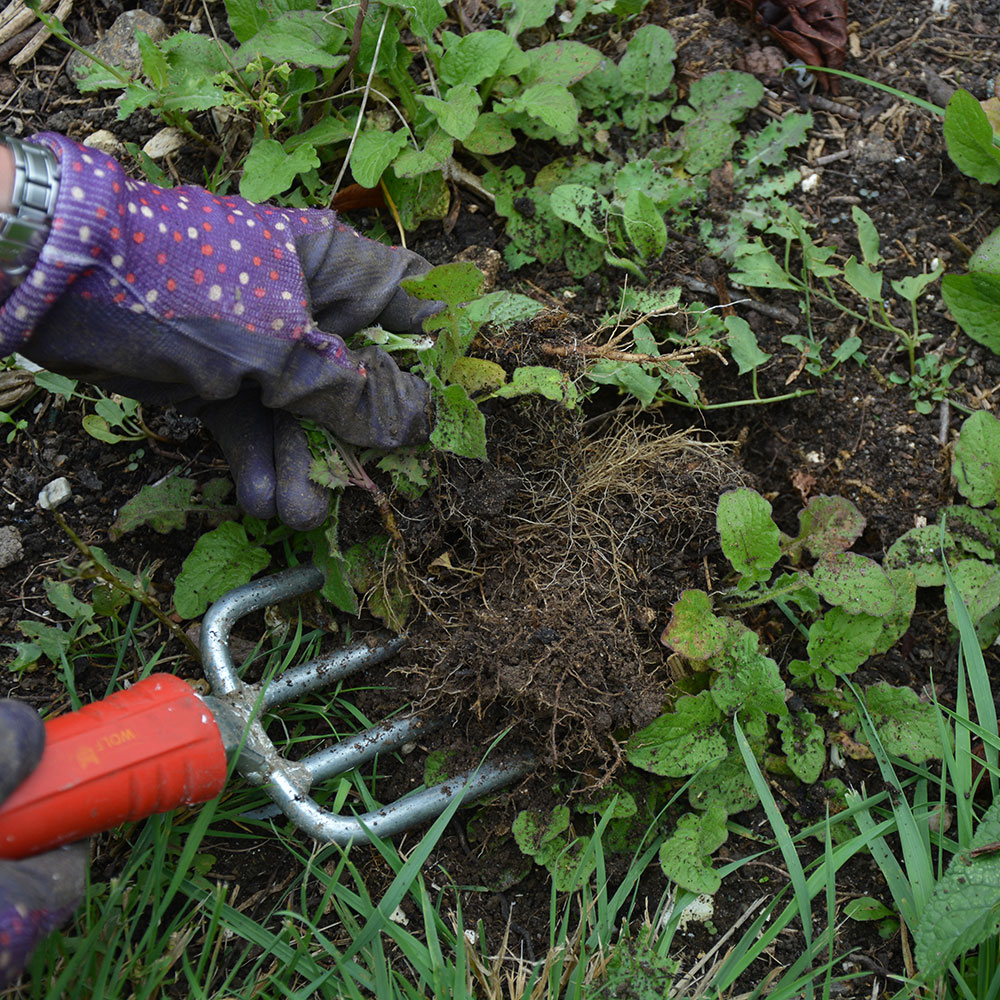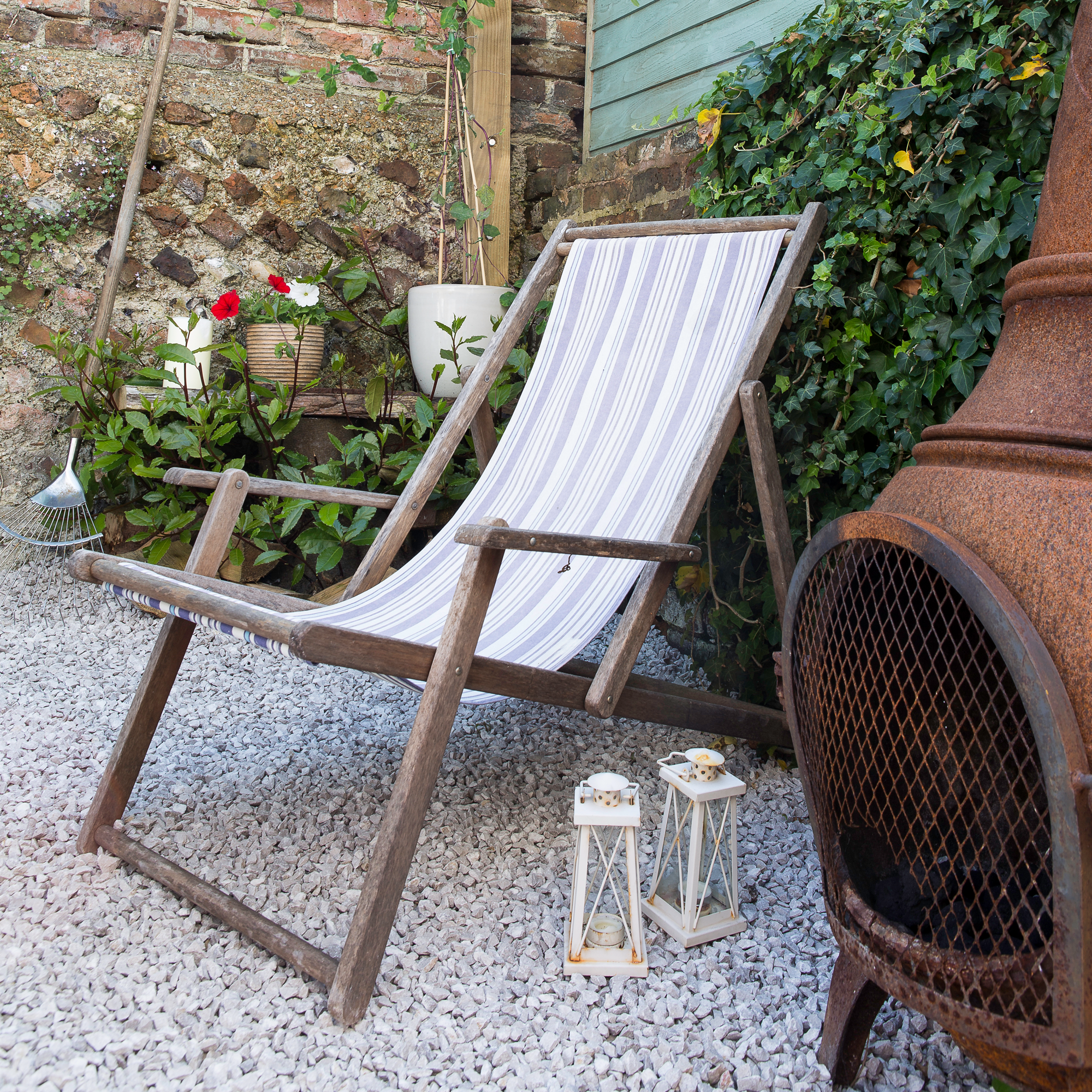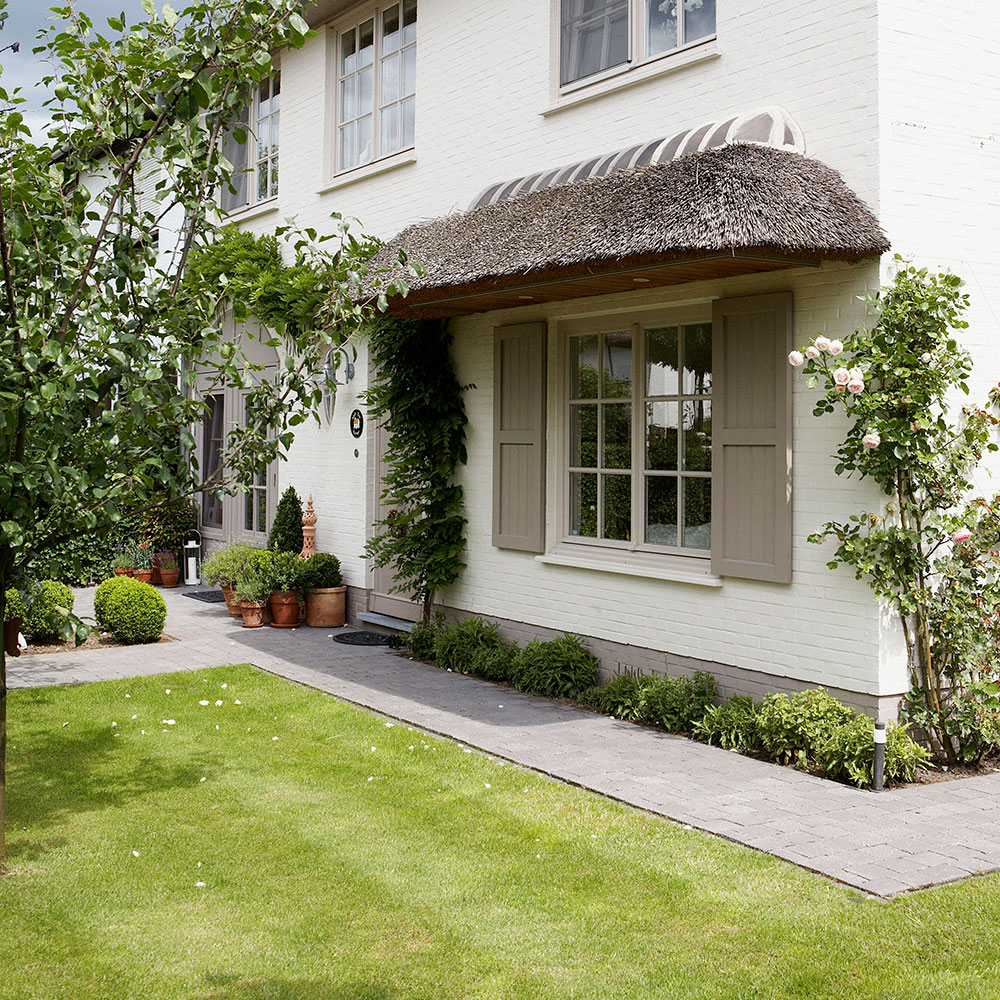
Want to know how to kill weeds? Well, you’re not the only one. Every year, houseproud homeowners and renters ask themselves the same question as these unwanted interlopers pop up time and time again.
Yes, even the best garden ideas can be ruined by weeds. And while there are some weeds that you should leave in the garden (yes, really), there are others that will do nothing but take over your outside space and dominate your garden borders, patio, driveway, lawn, and any other area where they can put down roots. Of course, killing the weeds should be your first port of call, but the last thing we want is for you to make any weeding mistakes.
That’s why we’ve reached out to garden experts to explain how to kill weeds and stop them coming back once and for all. And fewer weeds means even more space for beautiful flowers, crops, lawn stripes, and more.
How to kill weeds and stop them from growing
'Weeds can be a nuisance for any garden and some can cause more problems than just being an eyesore,' says Sam Jenkinson, Garden Expert at Tiger. 'But luckily for gardeners, there are many methods we can use to get rid of them.'
Of course, you may need to try multiple methods to find the one that gets rid of the weeds in your garden, but the experts have assured us that you can learn how to kill weeds no matter what type you're dealing with.
1. Know what weeds you're dealing with

Before removing any weeds, it is necessary to determine the species you are dealing with in order to ensure you choose the most effective method of removal.
Weeds are classified under two main categories in regards to their growing characteristics - annuals and perennials. Annuals are those that grow and sprout quickly and have an average lifespan of one year. Before they die they release hundreds of seeds which germinate and appear in the garden the following year. Common examples of annual weeds you might find in your garden are fat hen, chickweed, groundsel and hairy bittercress.
Perennial weeds on the other hand, return every year and typically develop extensive root systems, which make them extremely hard to eliminate. Examples of this type of weed are creeping thistle, brambles, bindweed and ground elder.
'To identify the type of weed you're dealing with, you can use an online weed identification tool or consult with a local gardening expert,' says Henry Bravo, Founder, SmartGardenHome. 'Remember that different weeds require different control methods.'
There are plenty of visual guides you can use to help you identify the weeds in your garden, such as the RHS guide to identifying common weeds.
2. Tackle annual and perennial weeds differently
'Annual weeds complete their lifecycle within a year and die off naturally, so removing them manually or with an herbicide should be sufficient,' explains Henry. 'Perennial weeds, on the other hand, have deep root systems and can regrow even after being removed. Dig out as much of the root system as possible for these weeds and use a herbicide specifically formulated for perennial weeds.'
Treating annual weeds before they set seed is essential to prevent them from spreading, so it's good to have a spot treatment on hand.
As explained by Henry, perennial weeds need to be tackled from the root. You could dig these weeds out by hand, but make sure you get the whole root. Leaving even the smallest piece can allow the weed to regrow. Use a knife to loosen the soil and lever up individual weeds that grow in beds and paved areas.
It's also a good idea to use a specialist weedkiller that targets the roots.
3. Opt for a natural weed killer
While it’s easy to buy an off-the-shelf chemical weed killer, there are always many ways to get rid of weeds naturally. Below, you’ll find a few natural weed killers and when they should be used:
- Use boiling water: Those wanting to kill weeds quickly and affordably should definitely try the boiling water hack. All you need to do is pour boiling water over the weeds and let them dry out. A few days later, you can pull them out by the root.
- Use salt: If you’re looking to kill weeds that are ruining your patio ideas and growing through every nook and cranny in your driveway, using salt to kill weeds could be your best friend. However, you should never use salt to kill weeds in a lawn or flowerbeds, as it will also kill any other plant life.
- Use white vinegar: By now, you should already know the benefits of cleaning with vinegar, but it turns out that you can also use vinegar to kill weeds. But while the acid in the vinegar can kill the foliage, it might not tackle the roots - so you may need to use it in conjunction with another weed removal tool. Remember to keep the vinegar away from your grass and other plants, too.
- Use baking soda: Like any other form of plant life, weeds need water to survive. By using baking soda to kill weeds, the weeds will essentially die of thirst as long as you go for a targeted approach and apply it directly to the weeds. Like the other options above, keep the baking soda away from grass and plants.
- Use bio washing powder: Did you know that you can use bio washing powder to kill weeds in your garden? All you have to do is sprinkle some on top and give them time to dry out before pulling them up. Again, ensure you keep this household product away from your lawn and plants.
4. How to stop weeds from growing between pavers

If you want to remove weeds from a patio or stop weeds from growing in block paving, you’ll know that weeds can leave patios and driveways looking unkempt and unloved. To prevent this, try using polymeric sand - like this Dansand NO GROW Block Paving Sand from Wickes.
This sand has a naturally high pH that stops weed growth, and all you have to do is pour it on the paving and sweep it into the joints (it works on gaps 1-5mm wide).
But if you’re already inundated with dandelions and other weeds between your pavers, there are a few ways to kill them and stop them from coming back. And while it's a laborious and fiddly task, pulling them out by hand is a cheap and effective way to revive your pavers.
The first step to take is to dampen the area between the pavers. This makes the weeds easier to remove.
Then, use gardening gloves, a weed knife with a hooked end, and a gardening kneeling pad like this Bosmere G116 Garden Kneeling Mat from Amazon to manually remove the weeds. Give the area a good sweep afterwards to remove any seeds that might have come loose in the process.
While you can use one of the best pressure washers, we'd advise against doing so regularly, as it can cause damage to your paving over time. If that all sounds far too time-consuming, try pouring hot water on the gaps between paving slabs.
You can also use baking soda to dry weeds out. Simply pour it over your paved area and sweep into the cracks.
Another cupboard staple that's often recommended is white vinegar. Spray it on the affected area to help kill off unwanted growth. Cass Heaphy Digital Director at Paving Direct warns not to use salt to kill weeds as it can damage paving, and recommends using an organic herbicide if weeds are persistent.
5. How to stop weeds from growing through gravel

Weeds will find a way of growing anywhere, including your gravelled driveways and outdoor living spaces. Knowing how to get rid of weeds in gravel can be done swiftly, and there are a few solutions you can try.
'One method is to use boiling water and vinegar to kill the weeds down to the root,' says gardening expert Henry. 'You can pour the mixture directly onto the weeds, being careful not to splash it on surrounding plants.’
‘Another option is to use a pre-emergent herbicide, which will prevent weed seeds from germinating in the first place.'
If this doesn't work, William Mitchell, Gardening Expert at Sutton Manor Nursery, recommends digging the area affected by the weeds to get rid of both the roots and the seeds. This will kill the weed and hopefully prevent it from returning.
‘All gravelled areas should lay on top of a landscape fabric membrane,' William explains. 'This acts as a layer between the soil underneath and the gravel on top. It makes it extremely difficult for weeds to pop through and into the gravel.’
For example, this Weed Control Ground Cover Membrane from B&Q will work wonders to keep weeds out of gravel.
6. How to kill weeds on a lawn

Any patch of grass will act as a magnet for unwanted plants, making it virtually impossible to stop seeds from infiltrating and germinating amongst the blades of grass. Good lawn care can help to get rid of weeds in a lawn, though. Remove space for weeds to flourish by mowing regularly and over-sewing bare patches with grass seed.
Hand weeding can be a faff, but it's a good – and natural – way to stop a small group of weeds from spreading. You might want to invest in a daisy grubber – the classic two-pronged tool with a lever action for pulling daisies and other weeds out of a lawn without spoiling the grass.
For larger infestations, you'll need to use a selective weedkiller that won't kill the grass. Granular selective weedkiller is often combined with a lawn feed and conditioner and is supplied in 'easy-flow' pans. These kill weeds and moss and feed the grass, too. They're easy to apply and work well.
Alternatively, water-on selective weedkillers contain a range of chemicals to target specific weeds. They are relatively cheap and are easy to use.
7. How to kill weeds with weedkiller

While we'd always suggest going down the natural route, there's no doubt about the fact that weedkillers are extremely effective in getting rid of weeds. When sprayed onto the leaves of the weed, they are absorbed and transported to the growing points of the plant – including the roots.
'But it's important to note that weeds will only take up the weedkiller when they are actively growing,' says Janne Hasen, Controls Category Manager for Roundup. 'Which is why treatment during the warmer months is recommended. Also, spot weedkillers are not selective and will kill any plant they touch, so be careful when applying them.'
Penetration through the leaves takes some time and effectiveness can be reduced if it rains within six hours of application. Weedkiller should therefore be applied on a dry calm day in order to achieve the best results.
FAQs
What kills weeds the fastest?
If you want to learn how to kill weeds quickly, one of the best things you can do is boil the kettle and pour the hot water on the weeds.
'Boiling water can be used to eradicate weeds within a couple of days,' says Sam Jenkinson from Tiger. 'Pour this on the base of the plant to instantly shock the weed and any seeds that are covered. Be very careful where this is poured, only use small amounts and make sure it doesn’t splash onto plants and flowers that you want to live.'
How often should you weed, and when?
The best approach to wage war on weeds is to make time for a weekly weed workout. Hoe the soil when the surface is dry, and on a hot sunny day, or when there's a good breeze.
'If you’re pulling the weeds by hand, it’s best to do this either early in the morning or late in the evening, because this is when it's more humid,' says John Dempsey, Gardening Expert, Housetastic.co.uk. 'This means the soil will be looser, making it much easier for you to pull the weeds out right down to the root.'
But are there certain times of the year when weeding is more important? According to John, yes. 'Weeding is most important between the months of March and June. This is when you should actively try to weed once a week. After that, you’ll likely find that you won’t need to weed as much.'
Does vinegar kill weeds permanently?
'The acetic acid inside vinegar is effective on smaller weeds and will get rid of any that are visible,' says Sam Jenkinson. 'It is better to use vinegar on gravel and paving rather than grass as it can alter the soil and prevent anything from growing in the future.'
The only risk with using vinegar for killing weeds is that the acid may kill the leaves before reaching the root system, which will result in them growing back. But if the vinegar can penetrate the roots, it will get rid of the weeds for good.
Now you know how to kill weeds, it's time to put your plan into action.







